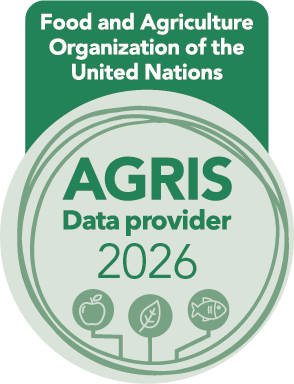Health risk assessment of heavy metals via dietary intake of vegetables grown in wastewater irrigated areas of Jagjeetpur, Haridwar India
DOI:
https://doi.org/10.26832/24566632.2018.0301011Keywords:
Dietary intake, Heavy metals, Human health risk, Soil, Vegetables, WastewaterAbstract
The present study was conducted to appraise the human health risk due to dietary intake of heavy metals contaminated vegetables viz., cabbage (Brassica oleracea var. capitata), cauliflower (Brassica oleracea var. botrytis) and spinach, (Spinacia oleracea) grown in the municipal wastewater irrigated soil in the proximity of sewage treatment plant (STP), Jagjeetpur, Haridwar. The results showed that Cd, Fe and Mn concentrations in B. oleracea var. capitata, B. oleracea var. botrytis and S. oleracea were found beyond the safe limit of the Indian and WHO/FAO standards for heavy metals in the vegetables. The contamination factor of these heavy metals in the soil was recorded in the order of Fe > Mn > Zn > Cu > Cr > Cd after irrigation of municipal wastewater. The higher values of metal pollution index in different vegetables as B. oleracea var. capitata (14.82; B. oleracea var. botrytis (10.48) and S. oleracea (12.59) showed more health risk index for Cd, Fe and Mn in these vegetables cultivated in the wastewater irrigated soil. Therefore, dietary intake of these heavy metals contaminated vegetables may pose a significant threat to the human health. However, cauliflower contained less heavy metal as compared to the cabbage and spinach, but health risk was more due to higher role in the diet. Even though there were low concentrations of heavy metals in the municipal wastewater used for the irrigation, but long term use of the municipal wastewater may cause gradual buildup of heavy metals in the vegetables grown in the municipal wastewater irrigated soil and leads to health risk of consumers due to intake of heavy metals contaminated vegetables.
Downloads
Downloads
Published
How to Cite
Issue
Section
License
Copyright (c) 2020 Agriculture and Environmental Science Academy

This work is licensed under a Creative Commons Attribution-NonCommercial 4.0 International License.




